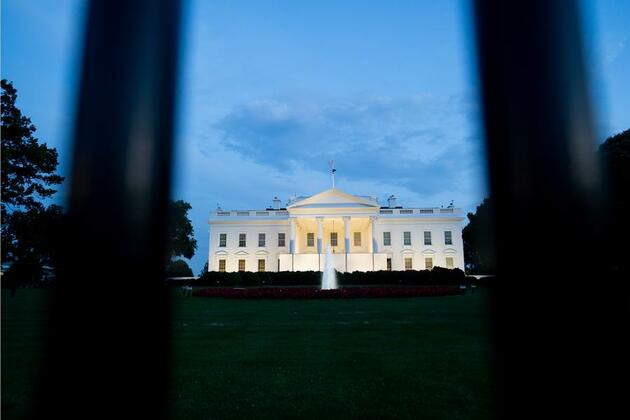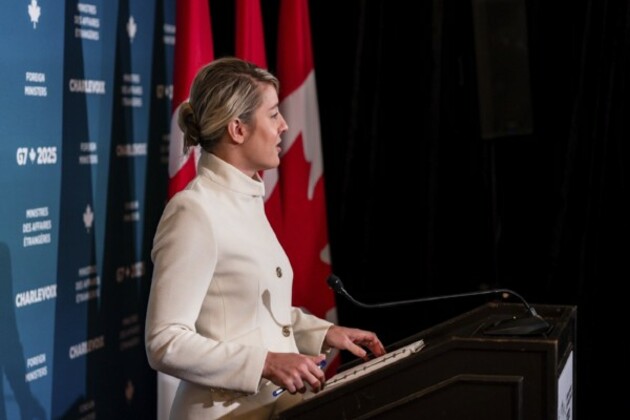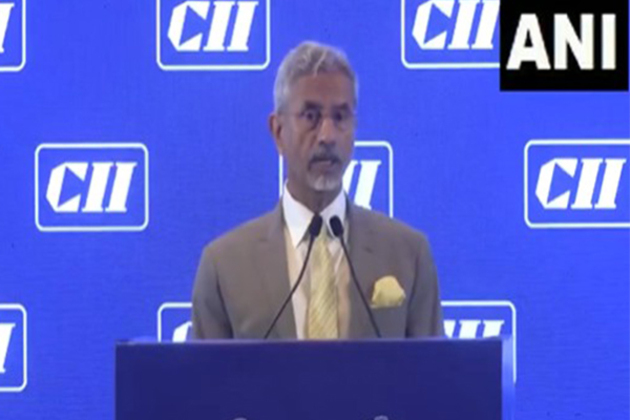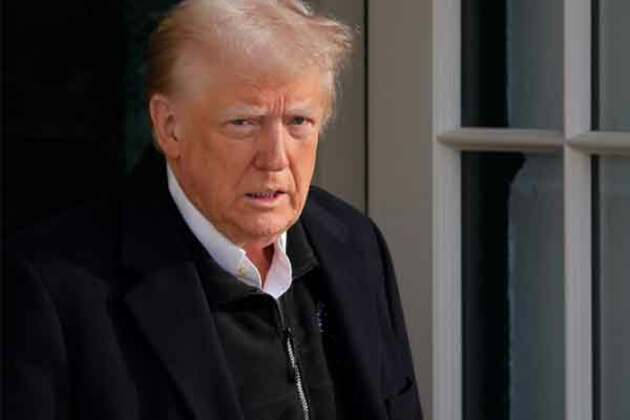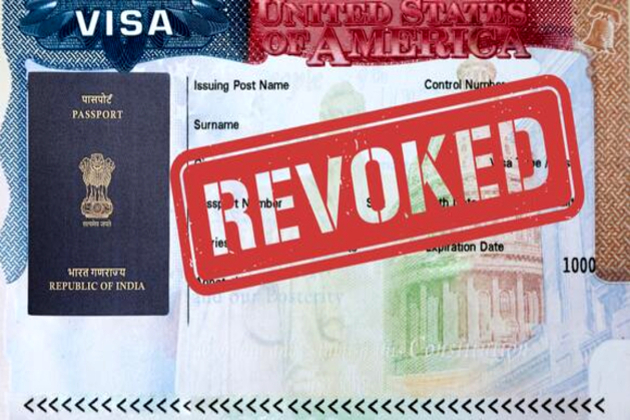An American military invasion of Canada? No longer unthinkable, but highly unlikely
The Conversation
20 Mar 2025, 11:46 GMT+10
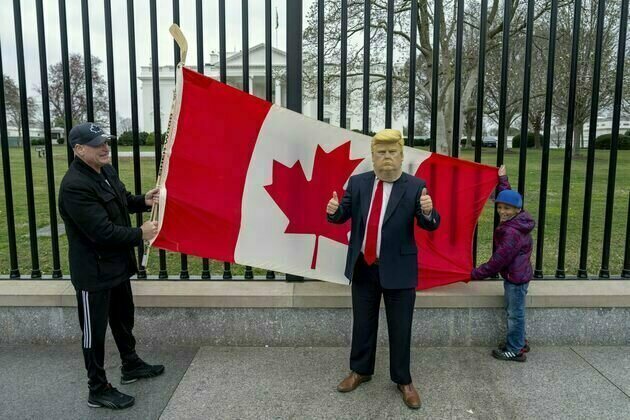
Two months ago, the idea that the United States posed a military threat to Canada was unthinkable. Today, discussions about a potential American annexation attempt are dominating Canadian media headlines and are a primary issue of concern among the country's government officials.
How did we get here? And should Canadians be worried?
While the Donald Trump administration's rhetoric and behaviour toward Canada is disturbing, the prospect of American military aggression remains remote. Military, economic and geopolitical realities ensure any attack on Canada would be a self-defeating blow.
Read more: Why annexing Canada would destroy the United States
Canada and the U.S. have enjoyed one of the most peaceful bilateral relationships in modern history, marked by deep economic integration, extensive cultural ties and close military co-operation.
Yet, in an extraordinary statement earlier this month before he was replaced as prime minister by Mark Carney, Justin Trudeau asserted that Trump was pursuing a strategy designed to collapse the Canadian economy to pave the way for annexation.
Since his re-election, Trump has demonstrated a routine disregard for Canadian sovereignty, with repeated references to Canada as the "51st state" and to Trudeau as its "governor."
He has referred to the Canada-U.S. border as "an artificial line of separation" and questioned the validity of the 1908 treaty that finalized it.
Senior Trump advisers have claimed that "Canada is not a real country," and have reportedly pushed for its removal from the Five Eyes intelligence-sharing alliance. Trump's instigation of a trade war against Canada is the latest, and most explicit, demonstration of his coercive intent.
An unprovoked military attack in pursuit of annexation would violate international law. But if the order was framed as a response to a fabricated threat, invoking border security or counterterrorism initiatives, American military commanders would nonetheless face pressure to comply.
In this context, Trump adviser Peter Navarro's bizarre claim that Canada has been "taken over by Mexican cartels" is troubling. After all, Trump recently designated drug cartels as "terrorist organizations," raising speculation about possible military action abroad.
Trump's dismissal of U.S. military leaders and what are known as "judge advocates general" is equally concerning.
U.S. Secretary of Defense Pete Hegseth's justification for the purge - that it was necessary to remove "roadblocks to orders that are given by a commander-in-chief" - suggests that the erosion of institutional checks that can impede the use of force was precisely the administration's goal.
All of this is understandably worrying for Canadians, especially amid an unpredictable trade war. But an American invasion is highly unlikely.
It's true that if the U.S. military challenged the Canadian Armed Forces, it would handily win. But that's why a Canadian response would not take the form of a conventional confrontation. Instead, the country would likely employ decentralized military resistance and irregular warfare tactics - and would have several advantages in the approach.
Canada's rugged terrain - characterized by dense forests, mountainous regions and vast northern territories - would provide ample cover for resistance forces to conduct ambushes, disrupt supply lines and impose asymmetrical costs. The long and undefended Canada-U.S. border would further complicate efforts to contain the resistance, permitting attacks on American soil.
The 800,000 Canadians currently residing in the U.S. provide additional opportunities for clandestine "fifth column" activities: espionage, sabotage and subversion. Simply put, an attempted military annexation would be folly in the extreme. It would tie down U.S. forces in Canada, would face blowback on American territory and unleash a transnational insurgency.
The costs of such a conflict would rapidly spiral. Beyond losses in personnel and equipment, the indirect American costs associated with lost trade would likely be as large as the direct costs of fighting. The strain this would impose on American society would quickly sap its already limited resolve: at present, just two per cent of Americans believe the U.S. should annex Canada using military force .
Meanwhile, the geopolitical fallout would be swift and far-reaching. The NATO alliance would be thrown into crisis and American relationships with other western powers would be shattered. China would no doubt exploit the turmoil to advance its global ambitions, while Russia would likely seize the opportunity to renew offensives in Ukraine and further destabilize Europe.
An attempt at military annexation of Canada would therefore be catastrophic for American power and prestige. Short of a desire for self-sabotage, there is no incentive for the U.S. to undertake such a reckless course.
Nonetheless, the Trump administration's rhetoric and behaviour is a wake-up call for leaders in Ottawa. Successive Canadian governments have under-invested in the Canadian Armed Forces, while the country's reliance on the American market for trade has left it perilously dependent on an increasingly mercurial neighbour.
Now is the time to take action to safeguard Canadian sovereignty. By investing in defence, diversifying trade relationships and strengthening internal resilience, Canada can chart a more secure and independent path forward. Now and for the foreseeable future, Canadians must keep their elbows up.
 Share
Share
 Tweet
Tweet
 Share
Share
 Flip
Flip
 Email
Email
Watch latest videos
Subscribe and Follow
Get a daily dose of Calgary Monitor news through our daily email, its complimentary and keeps you fully up to date with world and business news as well.
News RELEASES
Publish news of your business, community or sports group, personnel appointments, major event and more by submitting a news release to Calgary Monitor.
More InformationNorth America
SectionZelensky contradicts Trump on call details
US ownership of nuclear power plants was not under discussion, the Ukrainian leader has claimed Ukraine's Vladimir Zelensky has denied...
Explainer: What the new Kennedy assassination file reveal
This photo taken on May 22, 2024 shows the White House in Washington, D.C., the United States. (Xinhua/Liu Jie) So what this story...
Canada condemns China's execution of four citizens over drug charges
Ottawa [Canada], March 20 (ANI): China has executed four Canadian nationals on drug-related charges, a move that has drawn strong condemnation...
China restricts Thai journalists during Xinjiang visit amid Uyghur deportation
Beijing [China], March 20 (ANI): Chinese authorities closely monitored Thai journalists during a carefully controlled visit to Xinjiang...
Need to build reliable, resilient supply chains, says EAM Jaishankar
New Delhi, India March 20 (ANI): External Affairs Minister S Jaishankar on Thursday said that we need to build reliable and resilient...
Trump administration planning military buffer zones to hold illegal migrants at southern border: Report
Washington DC [US], March 20 (ANI): The Donald Trump administration is planning to take control of the buffer zone along the southern...
Canada
SectionUS to revoke more student visas after Columbia arrest
LA MALBAIE, Canada: The United States will likely revoke visas of more students in the coming days, U.S. Secretary of State Marco Rubio...
Canada condemns China's execution of four citizens over drug charges
Ottawa [Canada], March 20 (ANI): China has executed four Canadian nationals on drug-related charges, a move that has drawn strong condemnation...
U.S.-CHICAGO-CHINA-MUSEUM-COOPERATION
(250320) -- CHICAGO, March 20, 2025 (Xinhua) -- Chinese Museums Association General Secretary Li Jinguang (L, front) and David Pritzker...
Dubai Chamber of Digital Economy organises promotional roadshow for 'Expand North Star' in Canada
DUBAI, 20th March, 2025 (WAM) -- Dubai Chamber of Digital Economy, one of three chambers operating under the umbrella of Dubai Chambers,...
Canada-Ecuador free trade agreement threatens Indigenous rights and territories in the Amazon
Canada and Ecuador's new free-trade agreement is threatening the rights of Indigenous peoples and their territories, and increasing...
An American military invasion of Canada? No longer unthinkable, but highly unlikely
Two months ago, the idea that the United States posed a military threat to Canada was unthinkable. Today, discussions about a potential...


